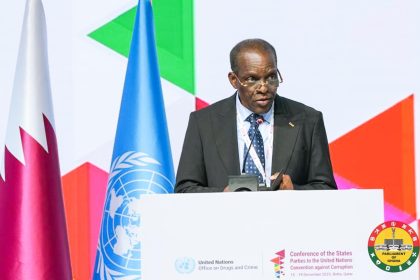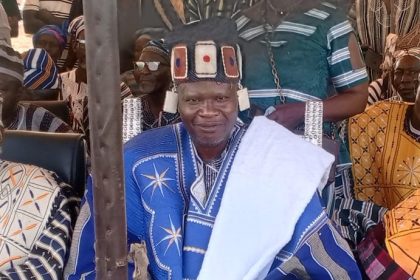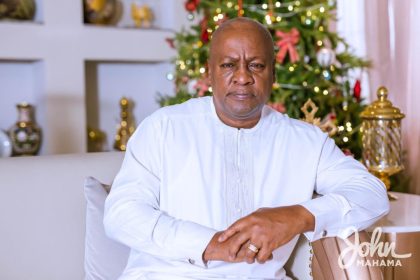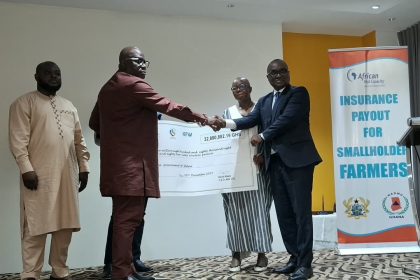Alhaji Muntaka Mohammed Mubarak, the Minister for the Interior, says building resilience against disasters is not a luxury, but a national necessity critical to achieving sustainable development.
He said across the world, the frequency and intensity of disasters were increasing due to climate change, environmental degradation, and unplanned human activities.
“Floods, droughts, storms, and coastal erosion continue to threaten lives, livelihoods, and national development, hence the need to build resilience,” he added.
The Minister was speaking at the commemoration of the 2025 International Day for Disaster Risk Reduction (IDDRR) on the global theme, “Fund Resilience, Not Disasters,” in Accra.
Alhaji Mubarak said as a nation, there was the need to recognise that every cedi spent on prevention and preparedness saved many more than would have been lost to disaster response and recovery.
He underscored that DRR was a shared responsibility that demanded collective action across all levels of society.
The Minister called for strong institutional frameworks, robust early warning systems, empowered communities, and conscious citizenry that prioritised risk mitigation.
“A resilient society understands its vulnerabilities and takes proactive steps to address them by protecting the environment, enforcing building codes, and safeguarding land and water resources,” he added.
He said this year’s theme urged a paradigm shift in how nations allocated resources, thus investing more in resilience-building rather than spending heavily on post-disaster recovery.
Investments, he noted, should include flood-resilient infrastructure, climate-smart agriculture, and strengthened institutional capacity for emergency response.
He acknowledged Ghana’s partnership with the World Bank and the Global Facility for Disaster Reduction and Recovery (GFDRR), which had contributed to strengthening early warning systems and improving urban resilience in line with the Sendai Framework for Disaster Risk Reduction (2015–2030).
Alhaji Mubarak stressed that more must be done to integrate DRR into local governance, increase domestic financing, and promote public-private partnerships to drive innovation and sustainable investment in resilience.
The Minister urged citizens to adopt a culture of preparedness in homes, schools, and institutions, noting that resilience must become a national value embedded in everyday decision-making.
Major (Rtd) Dr. Joseph Bikanyi Kuyon, the Director General, National Disaster Management Organisation (NADMO), said the Organisation had begun the process of revitalizing and expanding their disaster volunteer groups in all 261 districts.
He said this was to ensure that disaster preparedness and resilience began at the community
level.
The Director-General said the establishment of the National Geospatial Disaster Risk Platform (NGDRP) represented a major leap forward in the use of innovation and technology in data integration, geospatial mapping, and predictive analytics to enhance decision-making and early warning.
“With the support of all relevant partners, NADMO continues to strengthen Ghana’s disaster governance framework, improve data-driven preparedness, and build community resilience nationwide,” he added.
He said the collective efforts of the partners reaffirmed their national commitment to protecting lives, securing livelihoods and ensuring that no one was left behind in the journey towards resilience.
Dr. Kuyon said resilience building should not be viewed as an emergency expenditure, but as a strategic investment that created a safe society and promoted national development.
“Let us truly fund resilience, not disaster and build a Ghana that stands ready, adaptive and sustainable in the face of any Hazard,” he stressed.
GNA






